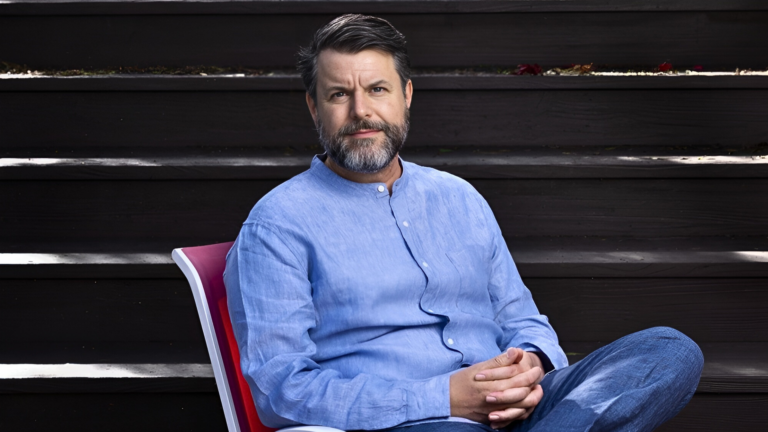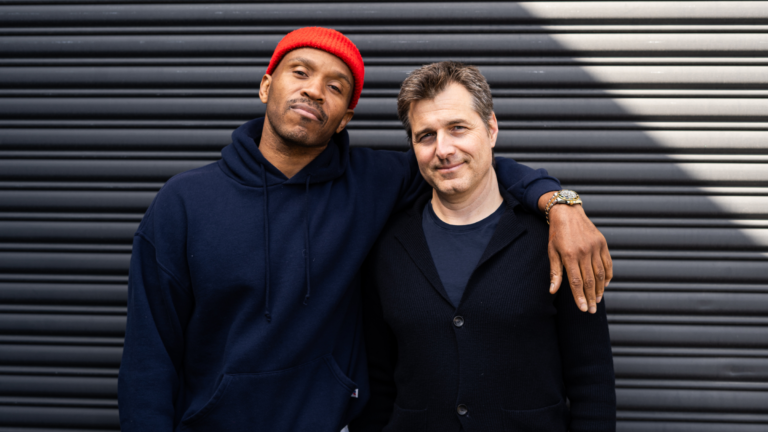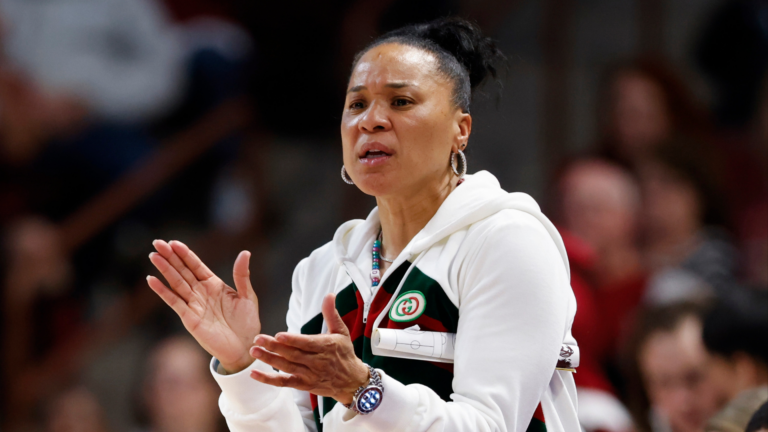This week’s conversation is with George Karl, the 6th winningest coach in NBA basketball history.
George coached the Cavs, Warriors, Sonics, Bucks, Nuggets and Kings over the span of 1,999 NBA games.
He was also an All American player in college at the University of North Carolina and played in the ABA for the San Antonio Spurs.
At UNC, George had the fortune of being mentored by the late Dean Smith and was surrounded by other brilliant basketball minds who helped shape his coaching philosophy.
George has never been one to hold back and the same can be said for this conversation.
He has some amazing stories to share, including his experiences coaching future Hall of Famer’s Ray Allen and Carmelo Anthony and what it was like going up against Michael Jordan in the NBA Finals.
We talk success, we talk failure, and we discuss why finding purpose in his post-coaching life has been challenging.
Beyond basketball, George is a three-time cancer survivor so he’s a fighter, he’s resilient by nature.
“I love my job, but I don’t think people understand you probably don’t want the job of being a head coach in the NBA. It’s a hard job. The love of it cluttered my life a little where I probably didn’t appreciate the great things I had in my life, as I do now.”
In This Episode:
On trying to find a new adventure post-basketball career
“I hang out in the gym a lot my coaching friends, mentor them, and have a lot of fun. My slowing down has been fun, but in the same sense, I don’t think I’ve totally got a purpose or a daily direction. I do a podcast, I do TV, I do radio, I jump all around. I’m not saying that I’m unhappy, but I want a foundation of consistency, more of a more daily direction.”
How did he find purpose thorough basketball?
“I loved being on a team. I loved being part of a winning mentality. We were challenged to be better than we are and climb a mountain to win championships. That started with Dean Smith at North Carolina.”
Dean Smith’s impact on him
“I grew up and learned a lot about not only basketball but about life through a man that was a great basketball coach, but was actually a better teacher of life and people than he was as a coach. For most of my life he’s been my hero. He’s been the guy that I always wanted to make proud; my father and him. I was blessed. My greatest blessing in life probably is my kids and being mentored by Dean Smith.”
Why he’s not a fan of analytics
“There are so many more things that come ahead of statistics for me. I’m a feel guy. I believe in going outside of the box. I don’t like being able to be predicted. I like taking control, dealing the cards as I call it. As I coach, I like taking chances. I like taking risk.”
Getting the most out of less talented teams
“I have the passion to coach the game. I have a passion to scrutinize what happened yesterday and make it better today. I think the thing that players liked about me is they could feel my passion. A lot of times when I was younger it was a little too angry, probably a little too egotistical at times. But as I grew into my career, I was blessed by being mentored by great coaches. Coach Smith being one, by Don Nelson and Doug Moe and Larry Brown and Del Harris and Rick Majerus.”
His coaching philosophy
“The total model is North Carolina basketball. Coach Smith, his philosophy was play together, play harder then. Play hard was not negotiable. If you didn’t play hard, you didn’t play, but play together as a “we,” get better and get smarter on a daily basis. The purpose was all based upon team things. Help each other, defense is a game, it’s not an individual game. It’s a team game. Offense, when you share the ball and play together, you’re better than the five talented people that you have on the field, on the court.”
Defining success
“I think over time, what I looked at as success is the degree of excellence that I brought to the game. Is my team playing at high level? Do my players get better in our culture? With the really good players I had, did they have their best years when I was coaching them? I live by the Chinese proverb that success means you have another challenge. Fortunately most of my career I had an opportunity of coaching in the NBA, which is one hell of a challenge.”
On team culture in the NBA
“I think in today’s game, there’s a little bit of a separation between player and management and player and coach and that’s being fueled by agents, shooting coaches, nutritionists. Players have so much clutter around them that it blocks away the coach or the assistant coaches or the organization. I think organizations have just accepted that. But in the end, I think the good organizations understand that it’s got to be a part of it. I think that in the end, I think we’re going to see more organizations try to be more connected with their players, not only in practice and in the weight room and then skill development in the culture of winning, but in being a person, being in life together.”
What did failure look like for him?
“My ego was a big part of my early failures. Being anti-authority, I had battles with my general managers, but I always was loyal, I just wanted my voice heard. And when my voice wasn’t heard, I got a little aggressive to the point of maybe being stupid.”
If he could go back, how would he better harness his emotions?
“I think my love for the game of basketball clouded the reality of life. I wish I would’ve had those years back. I think if I was more balanced, I would probably ask more questions than wanting to express more answers. I had that mentality that I wanted my voice heard and I realize today that that’s not always the best way. Silence sometimes is actually better than hearing a voice.”
His experience facing Michael Jordan
“He’s one of the most talented athletes ever to play the game, but his mind and his competitive spirit were greater than his athletic talent. I’ve played golf with him. I’ve played cards with him. His focus on winning, I’ve never seen anybody have it. [tweet_dis excerpt=””Michael was possessed by not only beating you, he wanted to mentally affect your next day. He wanted you to go home thinking, I’m not very good. He wanted you to go home thinking, “I can never beat that guy.” – @CoachKarl22 #FindingMastery”]Michael was possessed by not only beating you, he wanted to mentally affect your next day. He wanted you to go home thinking, I’m not very good. He wanted you to go home thinking, ‘I can never beat that guy.’[/tweet_dis] He’s the same way on the golf course. He’s the same way on the ping-pong tables. He doesn’t want to beat you. He wants to dominate you.”
What the NBA is missing today
“We don’t enjoy winning anymore. We don’t enjoy 55 wins because if you’re losing the first or second round of playoffs, we don’t have enough celebration of doing it the right way and doing it in a proud and a degree of excellence. I don’t know if that’s our society right now. There’s so much scrutiny and opinion and it’s easier to sell the negative than it is to sell the positive.”
His mindset in these uncertain times
“With this whole shakeup of our lives, we have more time for each other. We have time for ourselves. We’re going to get through this. It’s not going to be easy. It’s going to unify us. And then what we learn from the process will make us better. That has been the American way in many ways. I trust in our country. I’ve trusted it. I think it will empower us to regroup and restart maybe a better chapter, a better phase in American history.”


